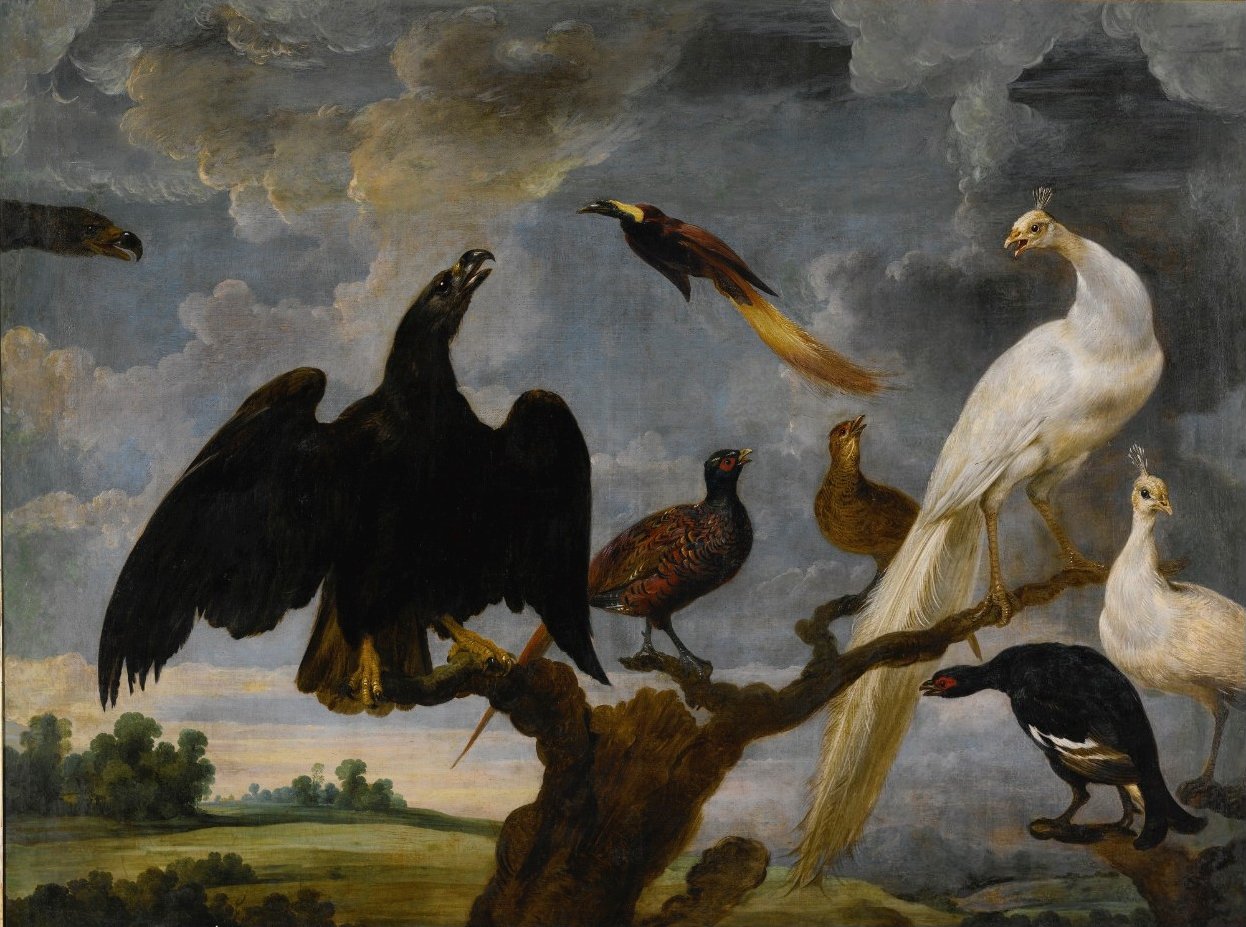Rev Dr Chris Wright is Global Ambassador and Ministry Director of Langham Partnership (www.langham.org). He is the author of many books including commentaries on Exodus, Deuteronomy, Jeremiah, Lamentations and Ezekiel, and is a Senior Research Fellow of the KLC.
Let me begin with three questions. First, in this very confusing and dangerous world, is it still possible to believe the old truths of the gospel as we’ve always affirmed them? Secondly, is it possible not only to believe them but to proclaim them, when we are surrounded by the gods and the idols of the culture that surrounds us? And thirdly, is it possible to believe in any hope of a better world, of a new world to come? Psalm 96 gives us a resounding yes to all three questions. The composer gives us a new song that refreshes the old words, a new song that displaces the old gods, and a new song that transforms the old world. Let’s think about the first of those here, in relation to the first three verses of the psalm, and save the other two for subsequent columns.
Sing to the Lord a new song;
sing to the Lord, all the earth.
Sing to the Lord, praise his name;
proclaim his salvation day after day.
Declare his glory among the nations,
his marvelous deeds among all peoples (Ps 96:1–3 NIV)
The psalmist begins in a very lively way, “Sing … sing … sing … praise … proclaim … declare!” he calls out. Six urgent imperative verbs telling us to wake up and “sing to the Lord a new song.” So we ask, “OK, please give us the words. What are the lyrics of this new song you want us to sing?” Well, he says, Let’s sing about the Lord’s name (meaning Yahweh the personal name of Israel’s God). Let’s sing about his salvation, (most likely the exodus, when God had redeemed his people out of Egypt). Let’s sing about his glory (possibly meaning the whole creation or specifically his presence in the temple). Oh, and let’s not forget all the other mighty deeds that God has done in the history of Israel so far (fill in the blanks).

But hold on, that’s not a new song! Those are the old words. That’s the song that Israel has been singing ever since Moses crossed the Red Sea! This is the old, old story of Yahweh and his love. How can this be called a new song? Is this a cover, or a remix? What makes it “new,” I think, is where it’s going to be sung, which is in all the earth, and who is going to be doing the singing, which is the nations and all the peoples. An old familiar song for some people can be a very new song when it’s being sung by people who have never heard it before. Maybe you’ve had that experience as a visitor in an unfamiliar church and you say to your neighbour at the end of the service, “That was a lovely new song we sang today,” and she replies, “Oh that’s an old song, we’ve been singing it here for ages!” An old song for her has become a new song for you.
The psalmist is picturing the nations of the world singing as a new song for them what was an old song for Israel. All that the Lord meant to Israel (his name, salvation, glory and mighty deeds) was to become the content of a new song for new peoples in new places to the very ends of the earth. And is that mission, or what?
Here is a musical metaphor for what we call world mission. It’s nicely different from some others, such as the more dominant military and management models of mission (warfare, targets, strategies and so on). Here, the mission of God’s people is winsomely inviting the nations to join in the joyful music of celebrating the name, the salvation, the glory, the mighty acts of God (which presupposes, of course, that they’ve been told about them). For us, reading this psalm as Christians and standing on our side of the cross and resurrection, this must mean celebrating the name of Christ and his salvation and his glory and the mighty works that he accomplished when God was in Christ reconciling the world to himself. For as Paul says (almost certainly citing an early Christian song), God has given to Jesus his own name, the Lord, and all that goes with it, including the anticipation of universal worship (Phil 2:9–11). We invite the nations to sing this new song, through the preaching of the gospel, the teaching of the Scriptures, and everything else that constitutes Christian mission. Mission turns the old song into new songs that bring the old words to life for new singers.

Now of course it’s still the old song. For the Israelites, the name, salvation, glory and mighty deeds of Yahweh, called to mind the whole story on which their covenant relationship with God was grounded – the story in which they had come to know God as creator, redeemer, covenant Lord and lawgiver, to experience his faithfulness, compassion, holiness and justice, and to be uniquely entrusted with such knowledge for the sake of the nations (a point emphasized in Deut 4:32–40). Nothing could ever change that original story because it was history – the record is there in the narrative. There was a having-happened-ness about the gospel of the Old Testament.
The same is true for us. Nothing can change the core truth of the gospel as the good news of what God has done in historical fact – the story of the life, death and resurrection of Jesus of Nazareth. But we are summoned to celebrate this “old story” with newness, with freshness, in such a way that every new culture hears it in a way that brings them understanding and joy, and that’s the task of Christian mission. “Singing a new song with the old words among the nations” could be a metaphor for the translating, enculturating and contextualizing thrust of Christian mission ever since the first Jewish followers and apostles of Jesus Christ found ways of articulating the great truths of their Scriptures, now fulfilled in Israel’s Messiah, among the varied cultures of the first century Mediterranean world.
“Both Israel and the church have been commissioned or called to reflect and to report the light of revelation, the good news about the true nature of God as Savior, Judge, King and Lord of the earth and all its inhabitants…. visualizing and verbalizing the revelation of the one, true God before the reachable world of nations … Old Testament psalms are sacred songs (Hebrew poetry set to music) that in part explicitly reinforce this divine purpose for Israel and thus implicitly for the church. They celebrate the character of cross-cultural outreach. They are the music of missions.”(2)

Mission as music is a metaphor worth thinking about, however, not only in relation to intentional and organized programmes of evangelism and social engagement and international “missions,” but also as to whether and how it can describe our ordinary daily lives in the world around us. What music emanates from your life? What is the new song that people hear as they meet and interact with you every day? And I don’t mean the latest Hillsong item that you hum at your desk … Like the fruit of the Spirit (another wonderful metaphor!), the music of our lives is mostly unconscious, but it is there and it is being heard by others. There may be times when it shares the lament tones of the blues, in empathy with suffering friends or advocacy for unjustly treated colleagues. Or the joy of jazz that brings improvising beauty out of pain-filled roots. Or the steady symphonic harmonies of the peace of God overcoming personal distress. What really matters is whether the music of our life is fundamentally the “old song” of gospel truth and biblical hope that permeates every fresh rendition, intriguing and inviting those who hear it to join in as a new song for them.

But it need not only be a metaphor. We are summoned, literally, to sing that new song. There is missional power in Christian worship and song. Indeed, the conversion of Europe began at midnight in a prison in Philippi when two Jews, who had been “severely flogged” and chained up in bleeding agony, “were praying and singing hymns to God [imagine!], and the other prisoners were listening to them” (Acts 16:25). Doubtless it would have been some of the old songs (psalms) that Paul and Silas were singing, but for the prisoners and especially the jailer, they were new songs that led to the planting of the first Christian church on the European mainland.
Luke doesn’t tell us, of course, what motivated Paul and Silas to sing in such circumstances, but it may have seemed like the only way (and a pretty effective way) that they could bear witness to the living God in the surrounding darkness and degradation – very different from their regular synagogue psalm singing.
“It may surprise you to know that many Jews in the period between the Old and New Testaments took seriously the idea of public worship as an act of mission. They knew full well that the collective praise of God in the synagogue or the temple was one of God’s ways of convincing Gentiles to bow their knee to the Lord. In some cases the Jews had great success. We know that numerous synagogues in the first century attracted great crowds of pagans wanting to know more about the God of the Jews … From the Psalm singing of ancient Israel to the synagogue services of Jesus’ day, public praise of the true God was believed to serve a missionary function.”(3)
And it still does, or can. Paul assumed that when believers met together, singing would be part of the event (Col 3:16). Combined with the spoken word in prophesying, such collective worship would have the power to bring unbelievers to conviction, repentance and worship of the living God (1 Cor 14:24–25).
Let’s be singing a new song to the Lord, in songs that proclaim his name, salvation, glory and mighty deeds, for the sake of the peoples and nations God has placed us among.

The Kirby Laing Centre for Public Theology in Cambridge. Charity registered in England and Wales. Charity Number: 1191741
Kirby Laing Centre, The New Mill House, Unit 1, Chesterton Mill, French’s Road, Cambridge, CB4 3NP
© 2022 The Kirby Laing Centre for Public Theology in Cambridge